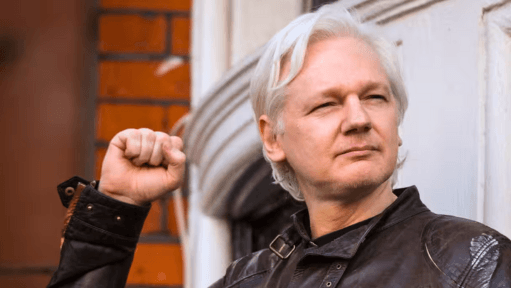
Wikileaks Founder Julian Assange Granted Permission to Appeal Against US Extradition
This means Assange will now be able to bring an appeal at the High Court in London
WikiLeaks' founder Julian Assange's battle to avoid extradition to the United States received a huge boost on May 20 when London's High Court ruled that US assurances over his case were unsatisfactory and he would get a full appeal hearing.
In March, the High Court provisionally gave Assange, 52, permission to appeal on three grounds. But it gave the US the opportunity to provide satisfactory assurances that it would not seek the death penalty and would allow him to seek to rely on a First Amendment right to free speech in a trial.
In a short ruling, two senior judges said the US submissions were not sufficient and said they would allow the appeal to go ahead.
Assange has been indicted on 17 espionage charges and one charge of computer misuse over his website’s publication of a trove of classified US documents almost 15 years ago.
At a hearing on Monday, the two judges granted permission to appeal. This means Assange will now be able to bring an appeal at the High Court in London.
Assange has been engaged in a 12-year legal battle to avoid extradition from the UK. A large crowd gathered outside the High Court ahead of the decision.
He was not in court for the hearing but his wife Stella, with whom he has two children aged five and seven, was present to hear the decision.
The WikiLeaks founder fled to the Ecuador embassy in London in 2012 while he was facing extradition to Sweden, where he was being investigated after a rape allegation was made against him two years earlier.
He has been battling extradition to the US since 2019 and is currently being held in the maximum-security Belmarsh Prison in London.
Assange’s lawyer Edward Fitzgerald said judges should not accept the assurance given by US prosecutors that he could seek to rely upon the rights and protections given under the First Amendment, as a US court would not be bound by this.
"We say this is a blatantly inadequate assurance," he told the court. Fitzgerald accepted a separate assurance that Assange would not face the death penalty, saying the US had provided an "unambiguous promise not to charge any capital offence".
The US government says Assange’s actions went way beyond those of a journalist gathering information, amounting to an attempt to solicit, steal and indiscriminately publish classified government documents.
James Lewis, representing the US authorities, said Assange’s conduct was “simply unprotected” by the First Amendment.
“No one, neither US citizens nor foreign citizens, are entitled to rely on the First Amendment in relation to publication of illegally obtained national defence information giving the names of innocent sources, to their grave and imminent risk of harm,” he told the court.
US prosecutors allege that Assange encouraged and helped US Army intelligence analyst Chelsea Manning to steal diplomatic cables and military files that WikiLeaks published.
Assange's lawyers say he could face up to 175 years in prison if convicted, though US authorities have said any sentence would likely be much shorter.
For any enquiries or information, contact ask@tlr.ae or call us on +971 52 644 3004. Follow The Law Reporters on WhatsApp Channels.